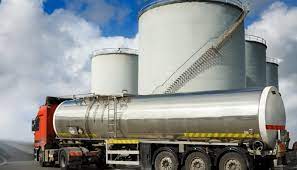The Major Oil Marketers Association of Nigeria (MOMAN) and the Petroleum Marketers Association of Nigeria (DAPPMAN) have kicked against the restriction of petroleum import licence to a limited number of refiners as spelt out by the proposed Petroleum Industry Bill (PIB).

The two marketing unions said the decision of the proposed bill was against the principle of fair play for a major resource that the country largely depended on, noting that it was dangerous.
While the bill removes price controls on petroleum products in Section 205, the Senate version of the bill has a clause that constrains market competition by restricting the importation of products to only players with local refining capacity.
Specifically, the clause restricts the licence to import all refined products into the country to a very small number of local refiners.
This restriction extends to products that have long been deregulated such as diesel, kerosene (HHK and ATK), LPG and base oils.
Speaking on the controversy, the two major marketing unions in a jointly signed statement by Clement Isong and Olufemi Adewole said: “Our members wish to strongly advise caution with this provision that allows only refiners to hold import licences for refined products for the following reasons.”
They said it posed a monopoly risk that must be avoided, noting that it was imperative that a level-playing field is set for all operators across the value chain.
Read Also: Nigeria Operators Underpaying Royalties, Overstretching Exploration Licenses – NEITI
“Any provision that does not guarantee a free and open market will give room to price inefficiencies and eventually kill off small businesses in the downstream sector”, they added.
The marketing unions insisted that the provision would stifle competition and leave pricing to be solely dictated by a few local refiners.
“We position that price must be kept competitive at the pump for the benefit of the average Nigerian whose income is constantly being eroded by inflation.
“Allowing imports by major players across the supply chain will protect consumers by ensuring that local pump prices are not higher than regional or international prices.
“If Nigerians are to pay higher international prices at the pump, we should also benefit when the prices go down internationally. This is not guaranteed unless there is a healthy competition,” they said.
Kindly like us on Facebook
















Discussion about this post